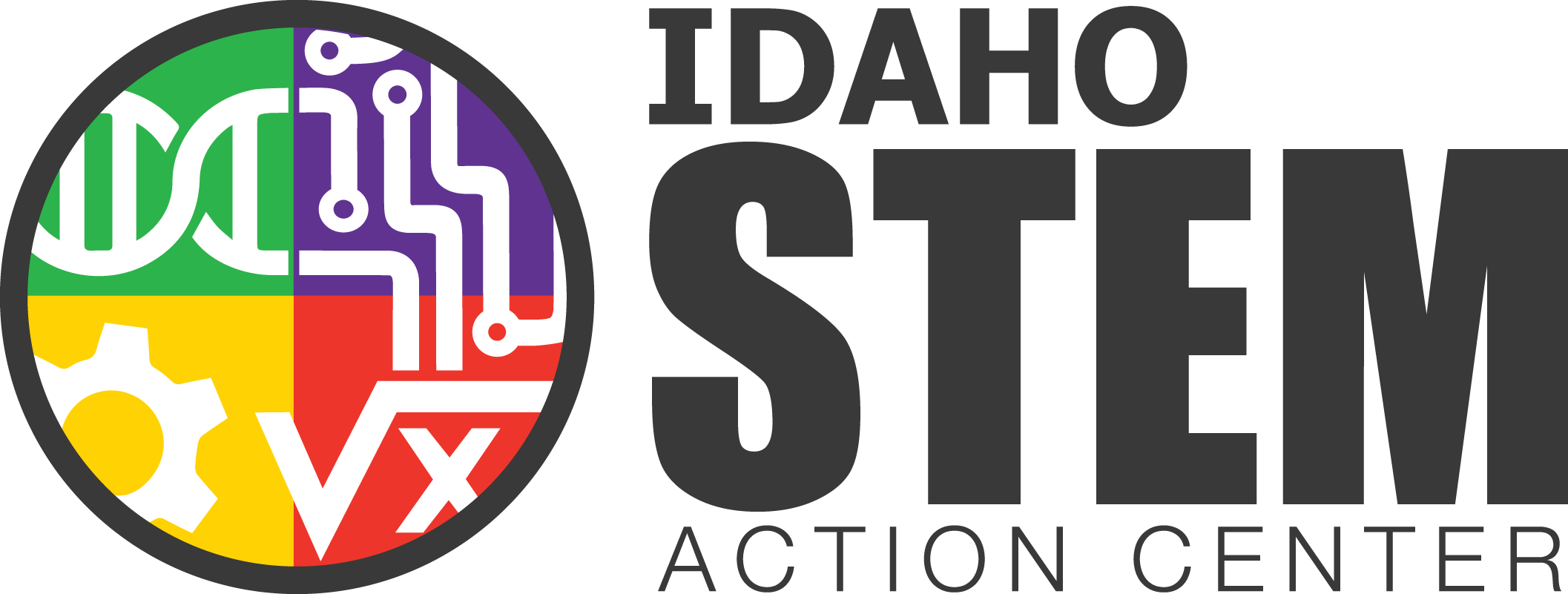i-STEM at College of Western Idaho

i-STEM is a summer professional development opportunity for educators (PK-12) working in both classroom and informal settings. During the Institute, participants attend a strand on project-based, hands-on learning in a chosen content area, as well as general sessions tied to the Institute theme. Strand topics vary by location and can be accessed at the Institute links below in January 2024. Each participant will receive a kit of instructional materials unique to their strand, so that they can implement what they have learned in their own teaching environments.
2024 Theme is STEM Leaders: Launching a STEM Identity
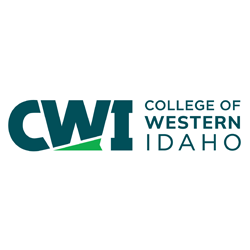 Participants were encouraged to attend i-STEM with colleagues from their own school, district or organization so they could learn together, share ideas and collaboratively implement what they had learned.
Participants were encouraged to attend i-STEM with colleagues from their own school, district or organization so they could learn together, share ideas and collaboratively implement what they had learned.
STEM AC is reaching out to businesses throughout the state to sponsor registration fees. We will reach out to you once you are accepted into the program and let you know if your registration fee is covered by a sponsor.
Your district may have funds to pay your registration fee to attend STEM AC PD opportunities. Learn more about Title 4 funding here and talk to your local administrator for guidance.
Status: Closed
Fees for 2025: $50, 25% discount for group registrations.
Eligible Applicants: All educators – formal and informal
2025 Funding Schedule
Open: February 3, 2025
Close: March 14, 2025
Award date: April 4, 2025
i-STEM Dates for CWI:
June 2025
PD Credits: PD credit is available for participation in this program.
Location:
College of Western Idaho
Aspen Classroom Building
6002 Birch Lane
Nampa, ID 83687
Map and Directions
Professional Development Credits
2024 Strands
Note: Kit contents and field trips are subject to change.
Strand Provider: Dean Wilkinson
Keywords: Workforce, Innovation, STEM challenges
Strand Description: This training/course covers the foundations of semiconductor science and technology. Students will learn what semiconductors are, where they are used in Idaho and beyond, how to build basic circuits, and what careers are possible in the semiconductor industry. They will explore industry innovations and manufacturing, trace paths to reach career goals in the semiconductor industry and investigate the future of semiconductor science through team challenges and gamified learning explorations.
Your kits will/may include: As part of this course, students will learn using hands-on electronics with programming. The SparkFun Tinker Kit or SparkFun LED Project Kit will be utilized for this training.
Setting(s): Formal Classroom, Informal Learning Environment

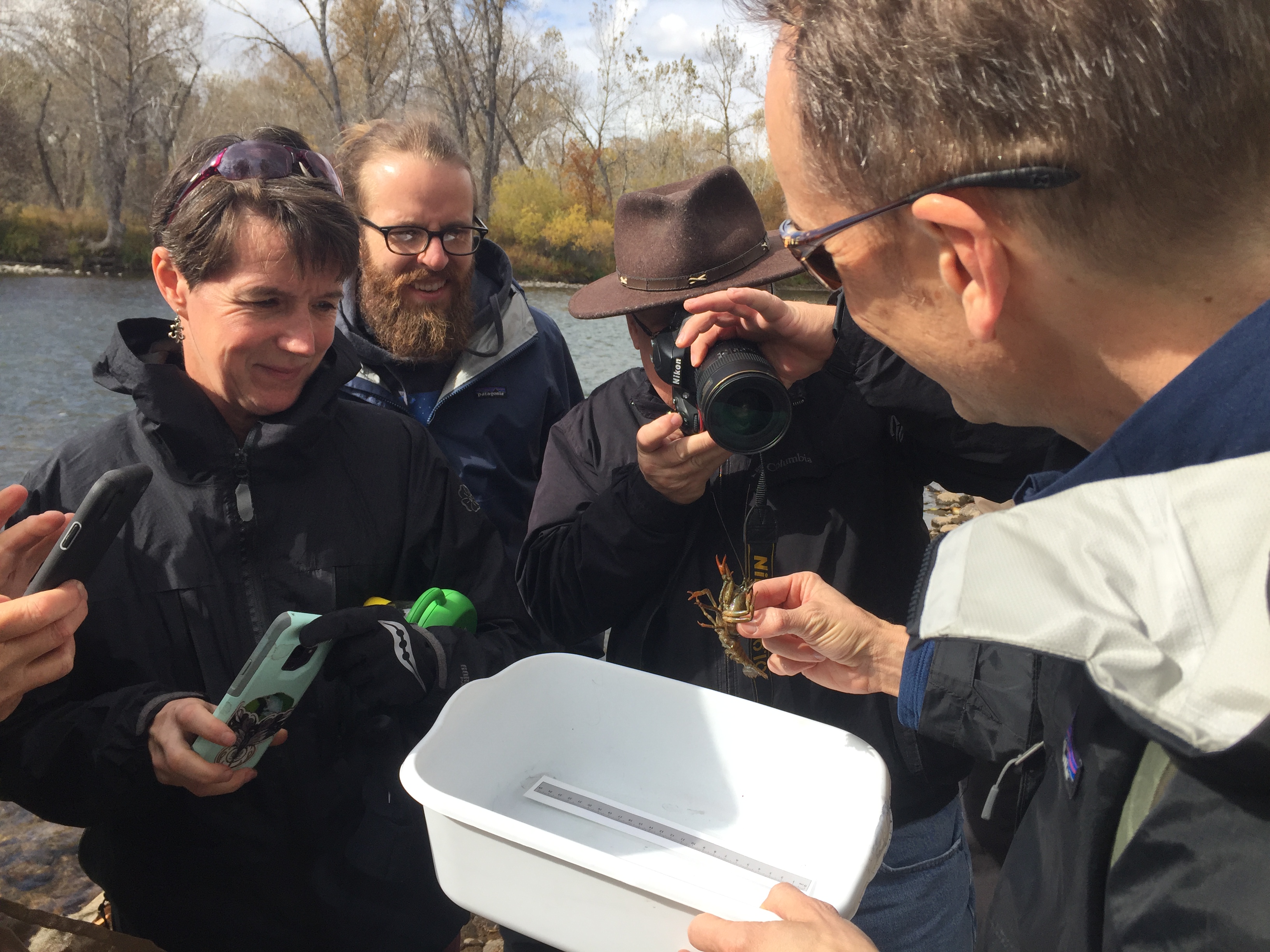 Strand Provider: James Ekins
Strand Provider: James Ekins
Keywords: STEM Leadership, water habitats, IDAH2O, Project WET, Crayfish
Strand Description: This strand combines FOUR impactful, interrelated investigative science learning programs: IDAH2O Master Water Stewards, Crayfish and Freshwater Ecosystems, Project WET (Water Education for Teachers), and Wildlife and Water Habitats 4-H curriculum. the first two being citizen science programs that students can do. Entirely interactive classroom sessions each morning will build to daily hands-on, place-based investigations at local water bodies.
Your kits will/may include:
Each participant receives:
- Investigating Crayfish + Freshwater Ecosystems curriculum, and the Wildlife and Water Habitats 4-H curriculum, plus other classroom materials, posters and multimedia presentations.
- FREE online access to Project WET’s brand-new Foundations Guide. It has all the tools they needed to integrate water education into every school subject.
- FREE access to the Project WET Water Education Portal.
- Official IDAH2O Master Water Stewards water quality monitoring kit. It contains everything a citizen scientist or teacher needs to complete a full stream or pond assessment, plus a crayfish trap for further investigations.
Setting(s): Formal Classroom, Informal Learning Environment
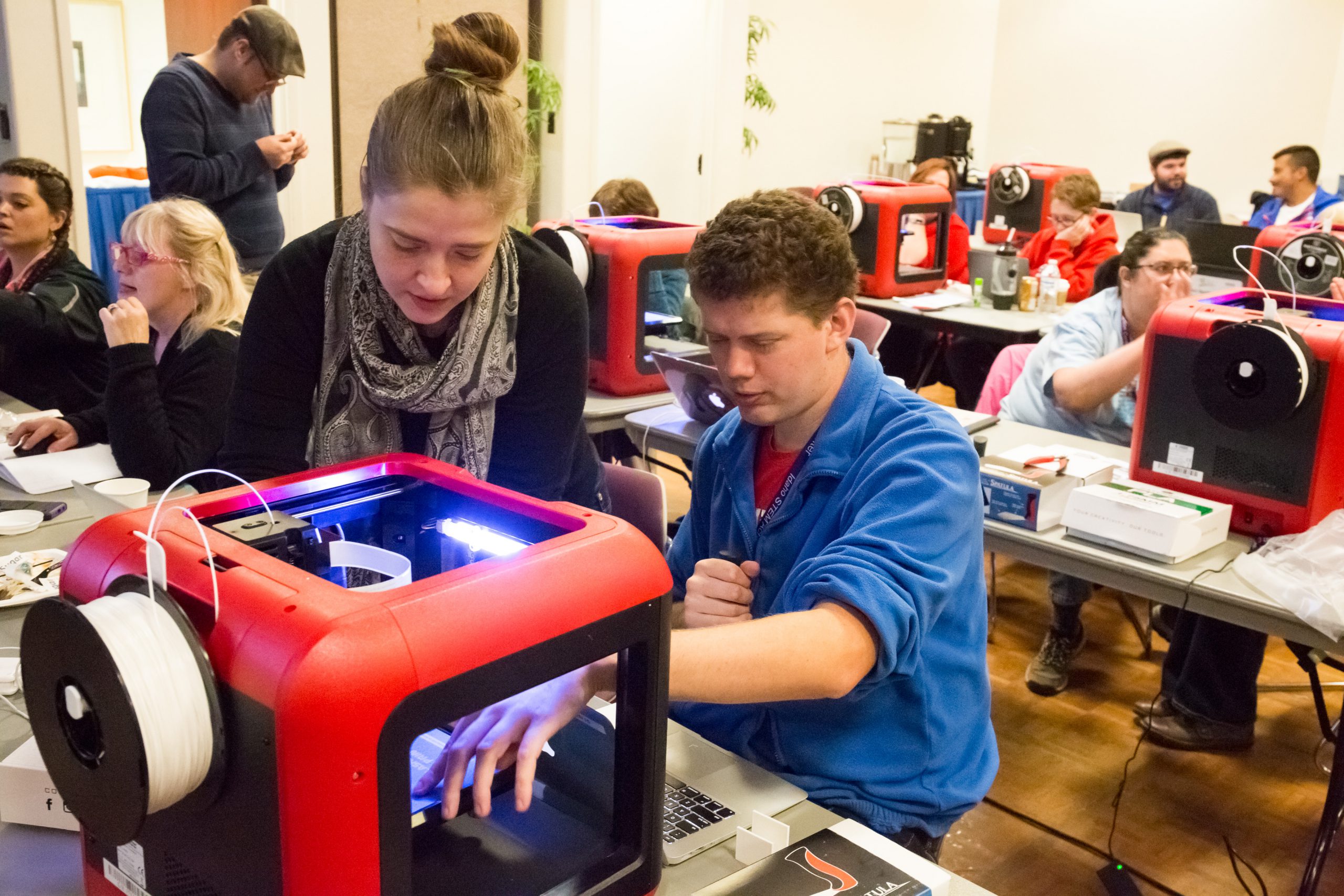 Strand Provider: Renee Watterson
Strand Provider: Renee Watterson
Keywords: Engineering, Design, STEM, 3D Printing
Strand Description: This strand introduces and gives hands-on experience to educators in developing a solid foundation in 3D design and fabrication. Utilizing design thinking and the engineering design process, educators are prepared to go back to their learning environments and introduce this project-based learning opportunity to a team of students to compete in an IDX competition. Participants can also take a 3D printer back into their classroom and continue developing ways to incorporate design and printing with Idaho content standards and cross cutting concepts.
Your Kit will/may include: A 3D printer 3D tools Spool of filament Calipers for design challenges All these tools will provide the educator with the tools to compete in the IDX program as well as incorporate 3D printing in their classroom lesson plans.
Setting(s): Formal Classroom, Informal Learning Environment
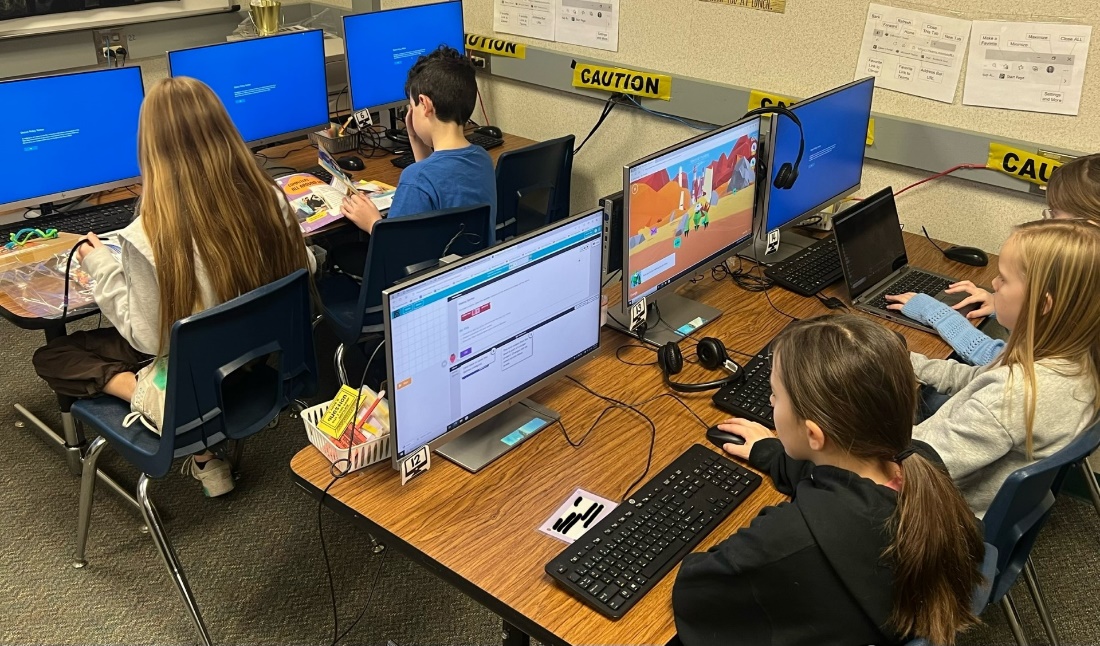 Strand Provider: Andrea Roderick
Strand Provider: Andrea Roderick
Keywords: Computers, Binary Code, Coding, Minecraft Education, and AI
Strand Description: This strand will provide educators with a variety of hands-on and online coding methods. All methods will be linked to computer science and other standards. We will practice and provide materials, curriculum, and lesson plans so you can take the knowledge learned to apply it back into your teaching. Educators will learn about how a computer works, binary code, digital citizenship, coding, AI, Minecraft Education, robotics and more. We will use various online tools such as Pear Deck, PowerPoint, and Google. This strand can be adjusted to any K-5 class. We will be focused more on 2nd to 5th grade students but will meet the needs of the educators. We will start with blocky code and if you want a challenge, we will show the other coding languages available. Educators will receive various books on the topics we are exploring and other paper/hands-on resources, so students are not always on their devices. We hope to have a couple of hand-on games to practice coding as a class or a group and off their devices. We will tour a local company or college to learn more about how coding and robotics are being used in our community.
Your Kit will/may include: Educators may receive, a classroom set of mice, Think Fun Hacker Cybersecurity Coding Game, Coder Mindz AI game (created by a 10-year-old), laminator and pouches, crafting items for coding bracelets, Teachers Pay Teachers gift card and various books about how a computer works, coding, Grace Hooper, Minecraft Education, AI and more. These items will help educators to duplicate what we will do over the four days of the strand. They will give both hands-on and online resources for various forms of coding activities. A classroom set of mice will help to code and play Minecraft with greater ease and will help educators in other forms of educational needs as many classes are one-to-one.
Setting(s): Formal Classroom, Informal Learning Environment
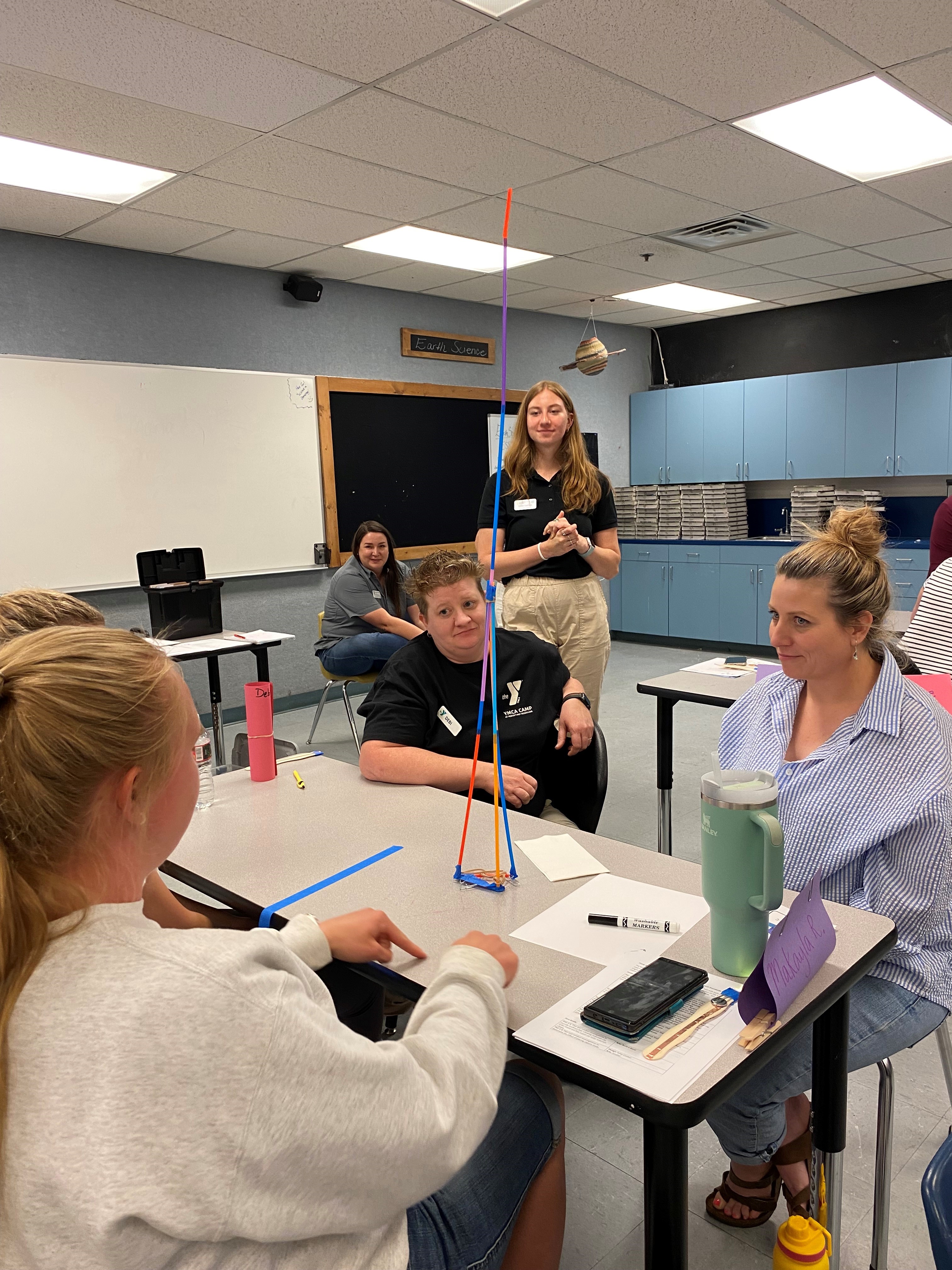 Strand Provider: Paul Verhage
Strand Provider: Paul Verhage
Keywords: STEM Activity Afterschool
Strand Description: Eighty percent of a child’s time is spent outside of the classroom. This time is a golden opportunity for children to grow and strengthen their STEM knowledge. It’s also an opportunity that is not fully realized today. This strand will help communities create enhanced STEM opportunities for children in your community. By attending this strand, you will learn how to set up out of school programs and become familiar with four aspects of STEM education that can take place in them.
Your Kit will/may include: Under development. We’re going to create a kit of several activities that young children can do in an informal setting. This should include activities in both the physical and life sciences. We’ll find virtual, online activities along with hands-on activities that can be completed quickly and over the long term. The goal is to keep the cost for replacement parts low.
Setting(s): Formal Classroom, Informal Learning Environment
Strand Provider: Amber McVey
Keywords: Hands-on, low-cost STEM activities for educators
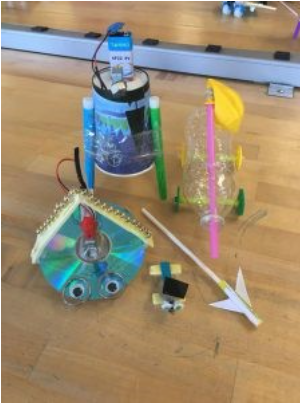 Strand Description: Do you struggle to incorporate STEM into your daily lessons? Is coming up with low-cost, high-interest activities challenging? This strand will walk you through ways to reuse and re-purpose low-cost items to get the maximum output. You will build, create, and innovate as you explore STEM in activities and lessons focused on providing students with engaging, collaborative STEM opportunities.
Strand Description: Do you struggle to incorporate STEM into your daily lessons? Is coming up with low-cost, high-interest activities challenging? This strand will walk you through ways to reuse and re-purpose low-cost items to get the maximum output. You will build, create, and innovate as you explore STEM in activities and lessons focused on providing students with engaging, collaborative STEM opportunities.
Your Kit will/may include: Each educator receives a kit with small, medium, and large activity materials. For make and take activities, participants receive a small sample kit of each activity along with the pricing involved in creating the kits as a small center activity or large, multi-classroom activity. They will also receive items that will allow them to run activities in centers, supporting students in completing challenges on a rotating schedule. In the kit, they will have robots, planks, makey-makey, rocket materials, 3D printers, paper circuits, and more.
Setting(s): Formal Classroom, Informal Learning Environment
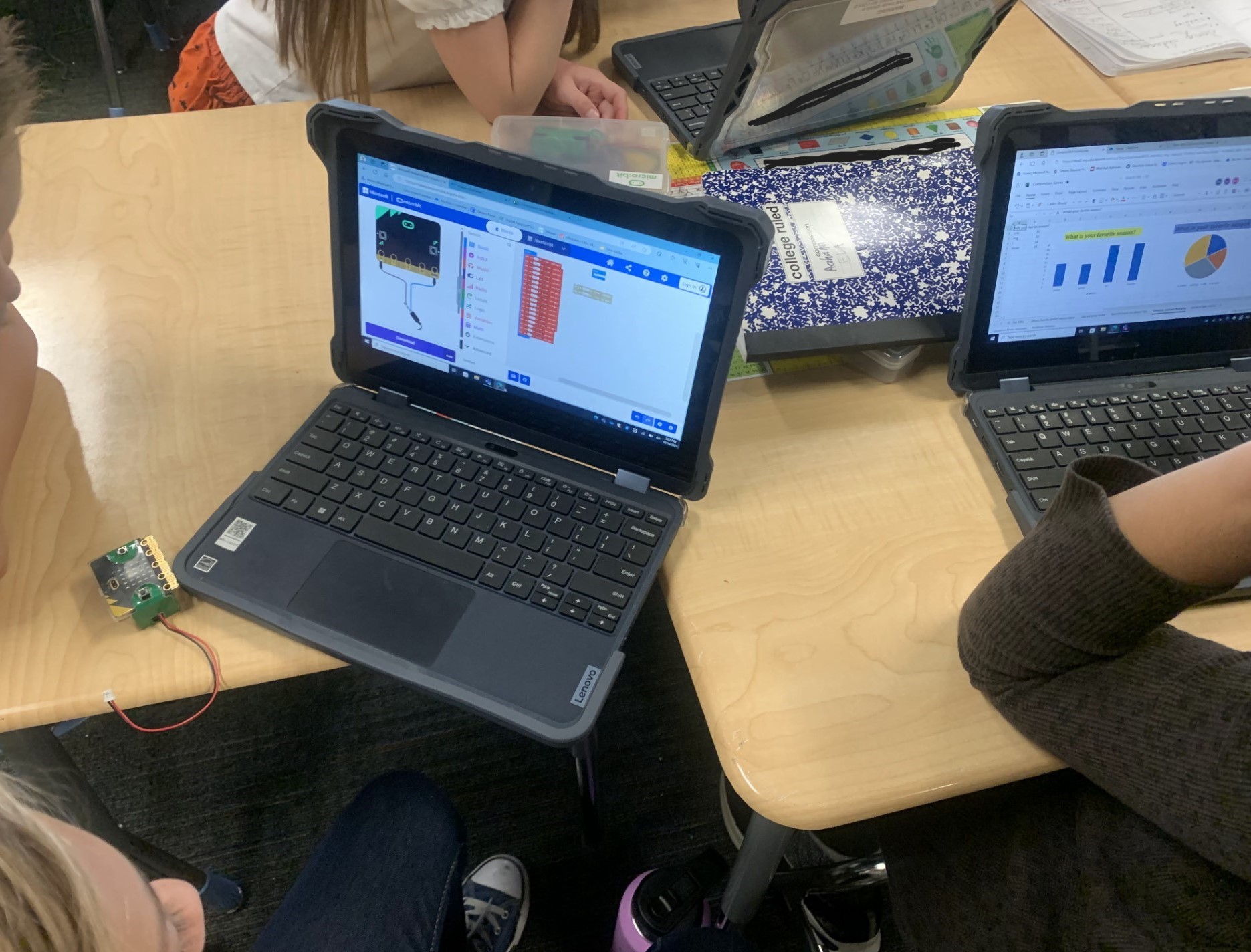 Strand Providera: Gina Kwid and Nicole Sarty
Strand Providera: Gina Kwid and Nicole Sarty
Keywords: Easy to use hands-on coding
Strand Description: Wanting to bring coding to your elementary classroom? Don’t know where to start? This strand will demonstrate the ease of coding with Makecode and provide a classroom set of materials to integrate into your classroom instruction. Poetry writing, data collection, social emotional learning, math facts, animal counter, music projects and more are all possible and enjoyable for both students and teachers. You will leave iSTEM with the knowledge, materials, and lessons to start the new school year integrating coding and computer science concepts into your classroom. Learn how to code with micro:bits to develop coding skills, create your own lessons, or use existing lessons to facilitate year-long coding and computer science lessons in the classroom that also teach core concepts. Explore the connections between computer science and core content instruction to maximize the use of classroom instructional time. The course is geared toward teachers working with students in grades 3rd-5th but is a great resource for teachers of all grades and content areas looking to introduce students to coding, physical computing, and computer science concepts. Educators will leave with resources and knowledge to integrate and implement their own coding and computer science lessons and projects in their classrooms which can also be shared with their schools.
Your Kit will/may include: Participants will receive 20 micro:bits, alligator clips, jumper wires, micro servos, speakers, copper tape, LED bulbs, and a storage case to store them all in addition to a book or two.
Setting(s): Formal Classroom, Informal Learning Environment


